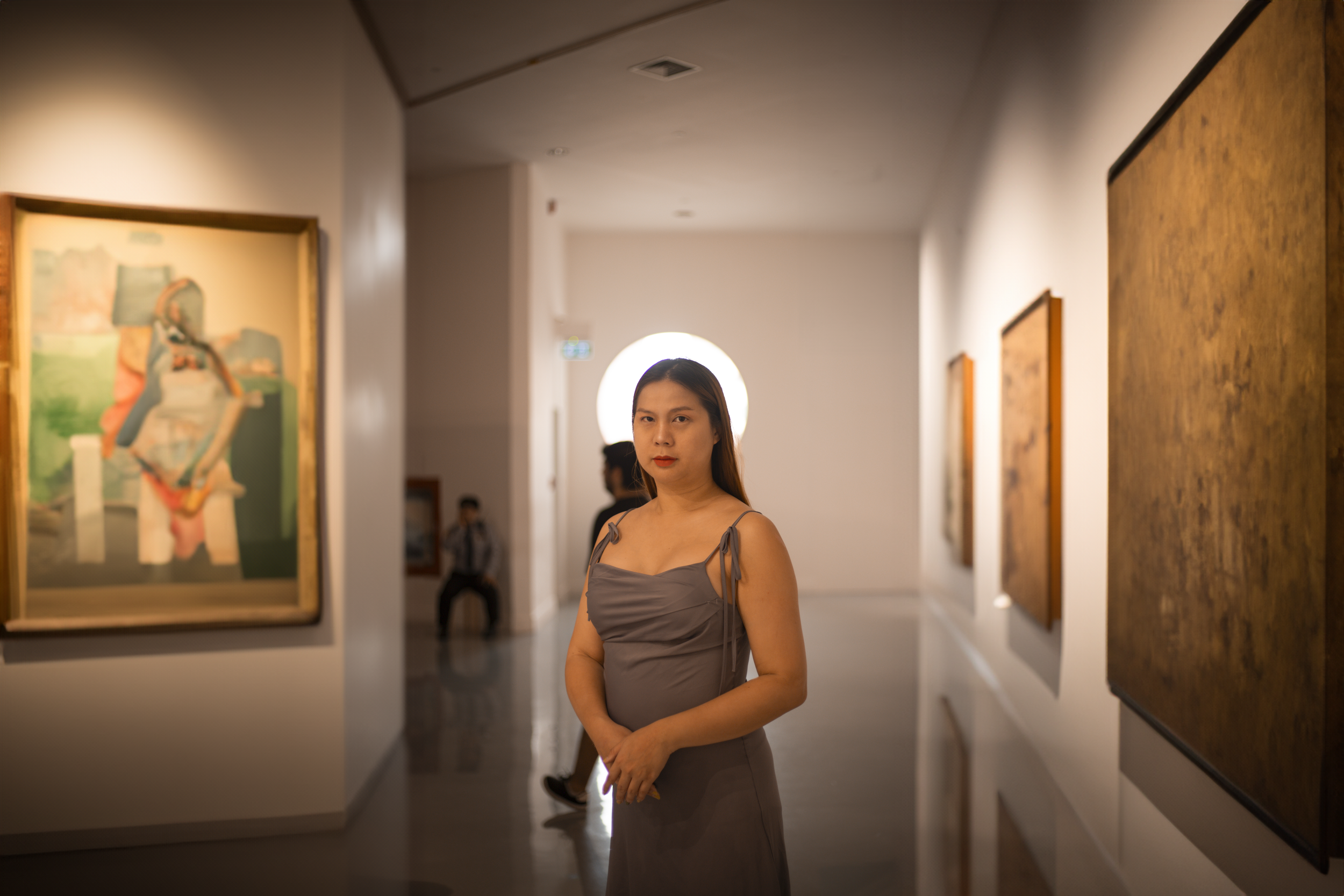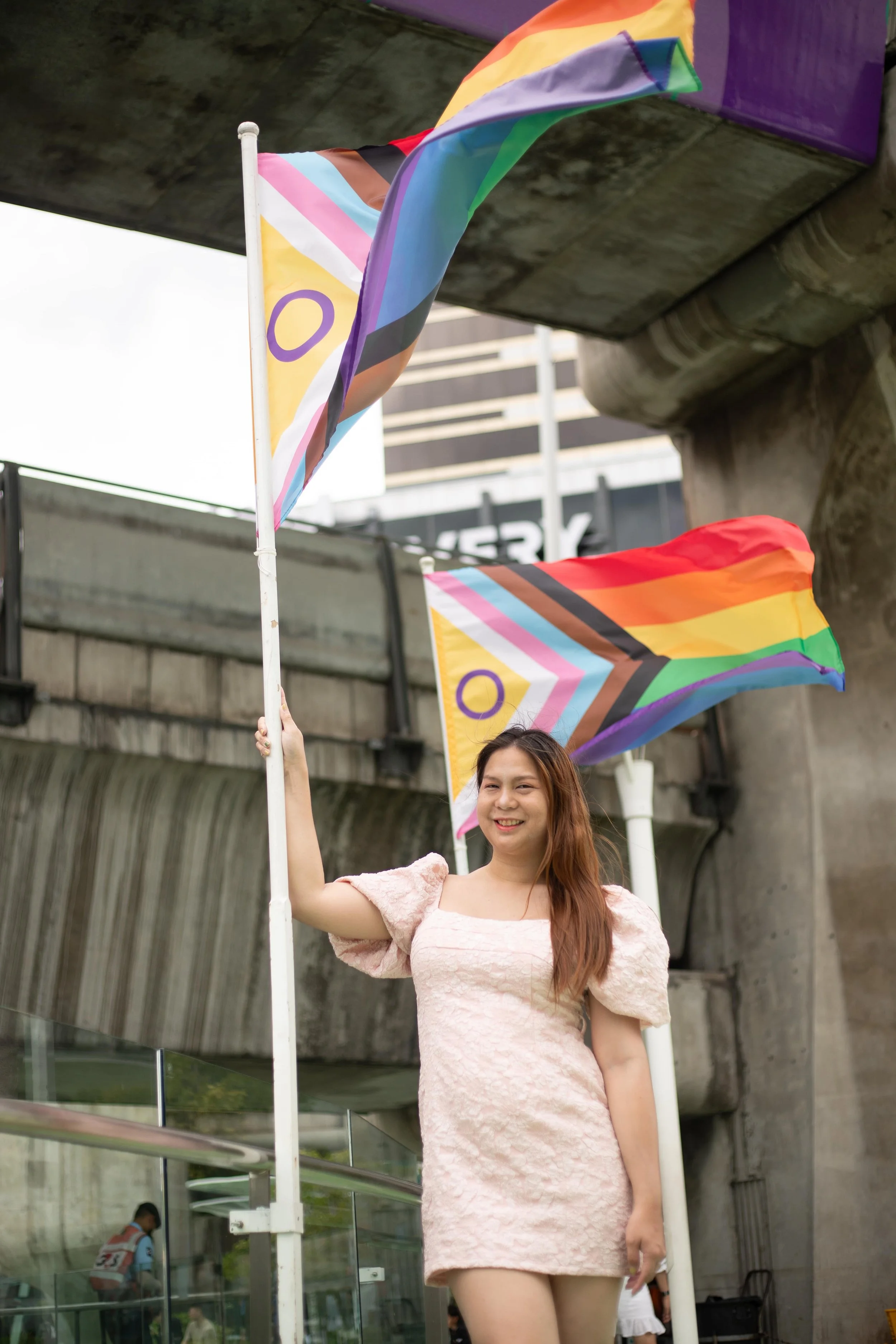Beyond Labels: Ladapa Napasiri's Vision for a Truly Inclusive Thailand
Dismantling stereotypes and advocating for comprehensive education in the Land of Smiles
Introduction:
Ladapa Napasiri (Nobel) is a passionate assistant to a member of the House of Representatives for one of the Thai Political Party, who fights for LGBTQ+ rights and advocates for sex workers' rights. Her mission extends beyond legal changes. She advocates for comprehensive education and awareness campaigns to address the root causes of discrimination against LGBTQ+ people and sex workers. Ladapa believes a truly inclusive society hinges on fostering understanding and empathy. She works tirelessly to build a world where all genders are respected, and individuals can thrive regardless of sexual orientation or profession. Ladapa actively dismantles the harmful stereotypes surrounding transgender individuals and sex workers in Thailand and globally, championing a society that values diversity and empowers everyone to reach their full potential.
Occupation: The Assistant to Member of the House of Representative
Others: Construction Business Owner | Master's Degree of Digital Marketing Candidate
Age: 31 years old
Pronouns: He/She
Can you tell us a bit about your journey of self-discovery?
“Even as a kid, around 5 years old, there was a sense that things didn't quite fit. I gravitated more towards my female friends, and when I was close to some of the boys, a different feeling emerged. It wasn't until later that I had the vocabulary to understand it, but the seed was definitely planted early on.“
How do you express your authentic self in your personal life or work?
“Growing up, my friends were my safe space. My sexuality wasn't a burden, and it was just who I was. But stepping outside that circle, especially with older generations, there were challenges. The constant judgment, the warnings about discrimination – 'It won't be great for you,' they'd say, 'Finding a job will be hard.' It felt dismissive, like a constant reminder that I wasn't 'normal.'
But here's the thing—every criticism, even the negative ones, can be a source of strength. I never saw my identity as a disadvantage. It made me who I am. And you know what? My friends had my back. Their acceptance was a shield against the negativity.“
What are some of the realities of navigating the world as yourself?
“The professional world can be tough for LGBTQIA+, especially trans people. Acceptance isn't as widespread as it should be. It feels like you have to be this overachiever, someone exceptionally skilled or beautiful (by their standards, of course) to even be considered. But why? Ordinary trans people deserve opportunities, too, and we're capable!
Just recently, there was this term used in the Thai government that labelled being trans as a disease. It's mind-boggling! Shouldn't they be promoting openness and acceptance? Judge us on our merits, not some outdated label.
Violence is a concern, but I can't say for sure if it's always because I'm trans. Sometimes, fitting certain beauty standards can make anyone vulnerable to harassment. Like that terrifying time in a taxi – I had to fight to escape a bad situation. Thankfully, I haven't faced physical violence, but the fear is always there.“
Have you ever encountered questions about your identity that felt out of place or made it difficult to have a genuine conversation?
“The most offensive questions are often the repetitive ones. 'Have you had surgery yet?' 'What's it like?' It feels intrusive like they're going for a medical chart consultation, not a conversation. We get it – surgery is a topic, but there's so much more to being trans!
'If I flick your nipple, would there be milk?'
Then there are the truly inappropriate ones, like the comment about breast implants. It's sexual harassment, plain and simple. But sometimes, you have to choose your battles. Maybe it's an immature person who just doesn't know any better. Education is key.
Another misconception is judging a man's sexuality based on who he dates. Just because someone dates a trans woman doesn't make them any less straight. If they see a trans woman as a woman, that's all that matters. It's about attraction, not gender identity. We need to move beyond these labels and see people for who they truly are.“
What are your thoughts on pronouns?
“Personally, I think Western term pronouns show that there’s respect and consideration involved when being communicated, and there are just Men and Women. For example, in Thailand, there’s a man, a woman, and then “Kateoy” describing trans.”
Who has been your biggest influence?
“My biggest inspiration? It might surprise you, but it's Engfa Waraha, Miss Grand Thailand. Here's why: she's living proof that dreams have no age limit. At 28, she chased her dream and achieved incredible success. She also embraced her identity as a lesbian, a powerful message for the LGBTQIA+ community.
Her story resonates with me because I have a dream, too – to be a singer. Life took me down a different path, digital marketing, but the music never left my heart. Maybe it was my mom not sending me to singing school, or there were too many obstacles. Back then, being an LGBTQIA+ artist felt impossible. Society just wasn't ready. But look at what's happening now! Even male singers are coming out and being accepted.
Engfa's journey inspires me. She pursued her passions—singing, pageantry, success—and didn't let anything hold her back. Her story reminds me that we can all rewrite our stories, chase our dreams, and redefine success on our own terms.”
How can LGBTQIA+ individuals navigate the challenges of coming out in countries with limited LGBTQIA+ rights?
“To those struggling to come out in a country with limited LGBTQIA+ rights, here's what I want to say: There's hope. The younger generation embraces self-acceptance, which extends to their loved ones. There's a greater chance of finding support now than ever before.
Even for those who've built a life with a wife and kids, it's never too late to live authentically. Happiness matters, and life is indeed short. Don't be afraid to chase it.
For the younger folks: Come out strategically, yes, but don't let fear dictate your truth. While every family is different, I believe most parents have a deep love for their children. Coming out may be a challenge, but it could also be a chance to strengthen your bond.
Education is power. Learn about your identity, explore your dreams, and strive to be a good person. This foundation will serve you well no matter what life throws your way.
Remember, you are not alone. There's a global community cheering you on, ready to celebrate your authenticity.”
What are your hopes for the LGBTQ+ community in Thailand, and how do you see your work with the Political Party contributing to those goals?
“Honestly, joining the Political Party wasn't about a pre-defined agenda for the LGBTQIA+ community. It was more about finding a space where I could truly be myself, surrounded by like-minded individuals. As the saying goes, 'you become who you surround yourself with.'
Initially, I even dabbled in environmental issues, but it wasn't my true passion. The turning point came when I applied for a parliamentary position. Imagine my shock when the application form blatantly stated 'no transgender' and, even worse, referred to it as a 'disease' (Hermaphroditism).
That experience ignited a fire within me. This is why I'm here—to fight for equality and dismantle these outdated and offensive notions. My Political Party provides a platform to advocate for change and ensure that LGBTQIA+ individuals have the same rights and opportunities as everyone else.”
How can Thailand and its Government create a more inclusive environment for transgender people?
“Respect for transgender people in Thailand is a mixed bag. On the surface, we see a level of acceptance that's quite unique in Asia. But if you dig deeper, there are still remnants of the past, these 'nationalist ideas' that define who can truly contribute.
Personally, I wouldn't hesitate to serve my country. Fighting for Thailand is something I would do with pride. But here's the problem: outdated laws based on an old constitution still hold us back. Right now, I can't contribute to certain roles, like being a police officer or a soldier.
The message I want the government to hear is this: judge us based on our capabilities, not our gender identity. Update the laws to reflect the reality of modern Thailand, a country where transgender people are not just accepted but empowered to contribute to all aspects of society.”
What would you say to the people who discriminate against individuals who are sex workers?
“Firstly, the government has a role to play. Legalization and regulation could create a safer and more organized environment for everyone involved. However, regardless of legalities, sex work is a valid form of work. People have the right to control their bodies and make choices about how they earn a living.
It's important to remember that sex workers are just like everyone else – deserving of respect and basic human rights. Like any profession, sex work has its own challenges, and ensuring the safety and well-being of those involved should be a priority.
Finally, concerns about sexually transmitted diseases are important, but we live in a world with advanced technology and a deeper understanding of these issues. Prevention, treatment, and living with these conditions are more manageable than ever before. Sex work can be a safe profession with the right approach.”
What are your thoughts on sexual health education in Thailand?
“Thailand definitely has room for improvement when it comes to sexual health education, especially in underserved communities. Corruption can play a part in diverting resources away from essential programs. Honestly, the biggest change could come from having the right people in government, leaders who prioritize the well-being of all Thais, particularly the next generation.
‘Education’ in itself is a cause close to my heart. At 22, I volunteered my time, teaching children for a very small fee. I'd even go beyond the scheduled hours, and to celebrate their achievements, we'd have pizza parties. It wasn't about the money; it was about empowering them. Seeing a student's GPA jump from a 1 to a 4, or a child from a temple school get accepted into a better institution – that filled me with immense pride. It wasn't just education; it was about giving them the tools to break free from their circumstances.
The respect I received, the simple act of a 'Wai' and a friendly snack (from their parents), solidified my belief.
‘You're beautiful (now), unlike back then . . .’
Occasionally, students would compliment my appearance and mention how I've changed over time. I'd use those moments as a teachable one. I'd tell them that true beauty comes from within, cultivated by knowledge and a curious mind. Education unlocks potential, opens doors to opportunity, and empowers you to achieve great things. Seeing their eyes light up with understanding, that's what filled me with joy.
At last, Thailand has immense potential. Investing in our children, nurturing their dreams, and providing them with comprehensive education is the key to unlocking a brighter future for all.”
Interviewed by Juliah S. Champion, Creative Director of V4H
Photographed by Pakin Ponbowonratchakul
Edited by Juliah S. Champion




